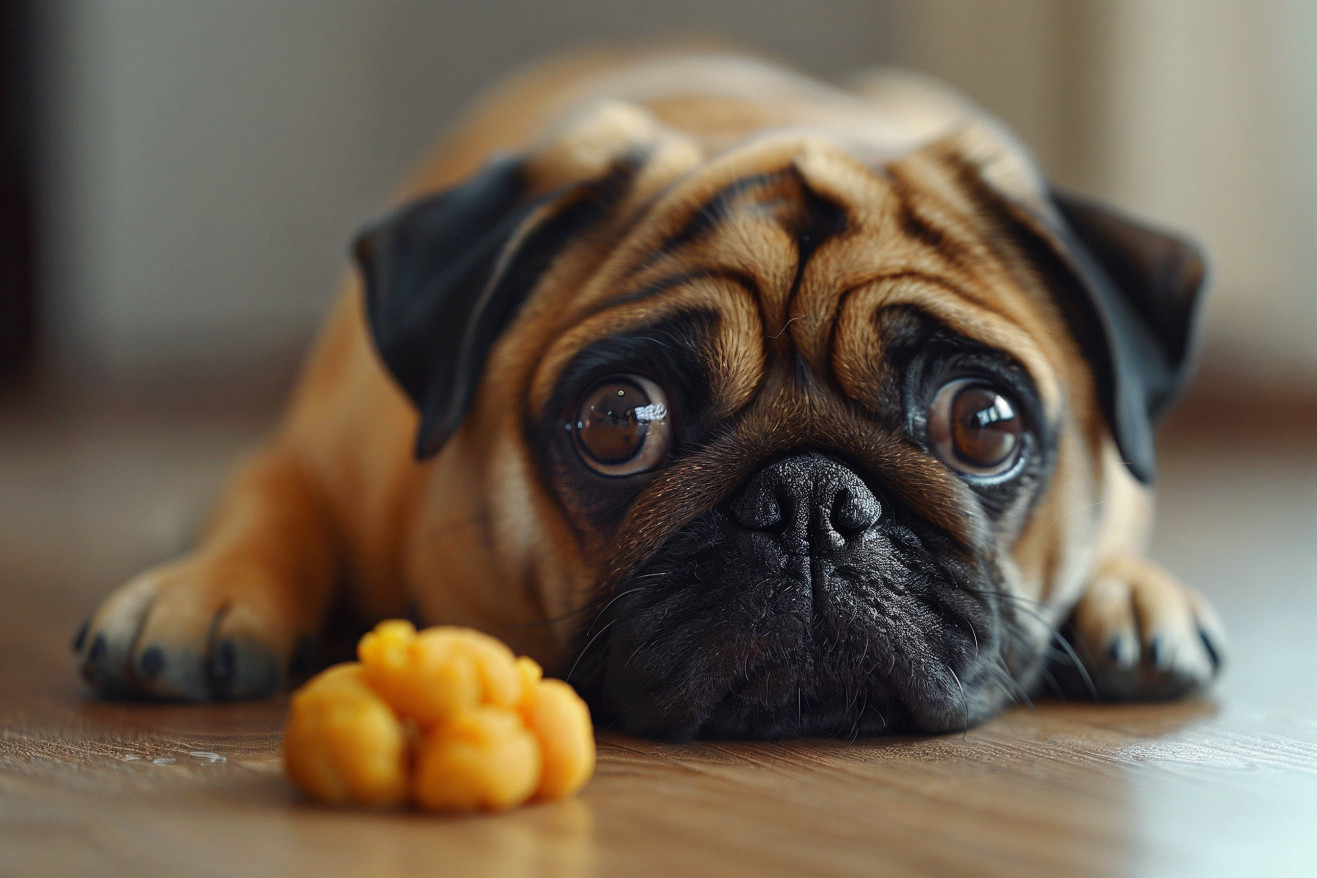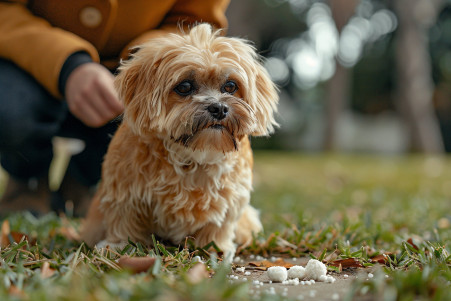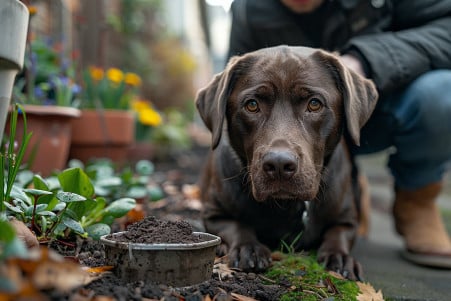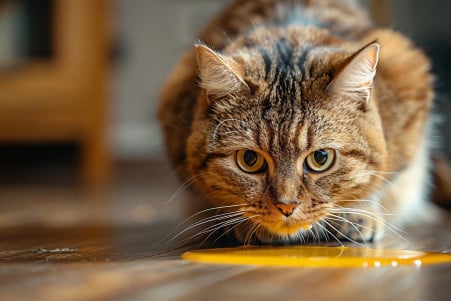Why Is My Dog's Poop Yellow? Causes and Remedies
11 April 2024 • Updated 11 April 2024

If you've ever seen your dog's poop turn yellow, you may have wondered why this happened. There are a number of reasons why a dog's stool may be yellow, including issues with the pancreas, liver, or gallbladder, as well as a food intolerance, infection, or a diet that's too high in fat.
This has led to a number of studies in a variety of scientific fields to try to figure out why this happens. By looking at the results of research in veterinary medicine, animal nutrition, and digestive health, you can learn more about why your dog's poop may have turned yellow and what, if anything, you should do to help your dog get back to normal.
What causes yellow dog poop?
What Causes Yellow Dog Poop?
According to Dr. Chyrle Bonk interviewed by Pumpkin Pet Insurance, the most common reason for yellow poop is a disruption in the digestive process or an inability to properly absorb bile pigments. While this can be scary, yellow poop is often not a cause for immediate concern, but it should be watched closely, especially if it happens with other symptoms like vomiting, lethargy or loss of appetite.
The yellow color is due to bile pigment that hasn’t been completely broken down and reabsorbed by the body because it’s moving too quickly through the digestive system. This can be caused by a number of things.
Common causes of yellow dog poop include changes in diet, digestive problems, bacterial or viral infections, eating non-food items that contain dyes, and underlying health issues. The latter can include everything from parasites and inflammatory bowel disease to more serious issues like liver disease, pancreatitis and gallbladder problems. While the color alone may not necessarily indicate a serious issue, it does mean that something is going on in the dog’s body that needs to be watched.
When to Worry About Yellow Dog Poop
If your dog's yellow poop doesn't go away after a day or two, or if it's accompanied by other symptoms like tiredness, loss of appetite, or other changes in their poop, it may be time to call your vet. MyFamilyVets notes that yellow poop that doesn't go away after a diet change may require you to switch back to the old diet.
In addition, Purina says that if a puppy has blood in their poop or severe diarrhea, it's important to call the vet immediately because puppies have weaker immune systems. Meanwhile, the team at Lively Paws says that if the yellow poop is accompanied by other symptoms that are concerning, it's important to call the vet because it could be a sign that the gut isn't working properly.
To avoid digestive issues, it's important to make sure that you're keeping an eye on your dog's diet and surroundings and that you're also taking them to the vet for regular checkups. Meanwhile, keeping an eye on your dog's poop can help you catch potential issues early. This way, you can make sure that you're taking care of yellow poop and other digestive issues before they become more serious.
Dietary Considerations and Home Remedies
If you are switching your dog to a new diet, make sure to do so over the course of 7-10 days to avoid any stomach issues, as The Farmer's Dog notes. During this time, you may notice that your dog's stool changes in color or consistency as their digestive system gets used to the new food, but this is usually nothing to worry about.
If your dog's yellow poop continues, Dog Food Advisor suggests fasting your dog for a short period of time and then slowly reintroducing a bland, easily digestible diet like boiled chicken and rice. You can also consider giving your dog probiotics or digestive enzyme supplements to help rebalance their gut and improve their digestion.
Feeding your dog soluble fiber like pumpkin or sweet potato can also be helpful since these can help solidify loose stools. That said, making the switch to a fresh, high-quality diet can also help your dog's digestion and overall health in the long run, as The Farmer's Dog points out.
That said, if your dog's yellow poop continues and especially if it's accompanied by other symptoms, it's best to talk to your vet to make sure there isn't an underlying health issue.
When to See a Vet
If your dog's yellow poop doesn't go away after a few days, it might be time to see a vet to look into any potential issues, says the Wrigleyville Veterinary Center. Chronic yellow stool can be a sign of more serious problems like liver disease, gallbladder disease, pancreatitis, or other intestinal diseases.
To take a stool sample to the vet, the PDSA suggests using a sample pot or plastic bag, making sure to avoid contamination, and clearly marking the container with your dog's name and the date and time of the sample. The fresher the sample (ideally within 6 hours), the better the chance the vet will be able to find parasites or other issues.
It's also important to make sure your dog is getting regular stool checks and parasite screenings, says Embrace Pet Insurance, since many dogs and cats can have parasites without showing any signs. If your dog has other symptoms like vomiting, lethargy, or bloody diarrhea, it's important to see a vet right away.
Conclusion: How to Deal With Yellow Dog Poop
Yellow dog poop can be caused by a number of things, from dietary changes and digestive problems to more serious health issues. While it may not be a cause for concern in some cases, if your dog's stool continues to be yellow or if it's accompanied by other symptoms, it's important to see a vet.
In some cases, yellow dog poop can be treated with dietary changes, a bland diet, and supplements like probiotics and fiber. However, if your dog has liver or gallbladder issues, or if they have an intestinal disease, they may need medical treatment.
Regular vet visits and keeping an eye on your dog's digestive health can help ensure that any potential issues are caught and treated early. By monitoring your dog's poop and knowing when to seek help, you can help ensure that your dog stays healthy and happy.


